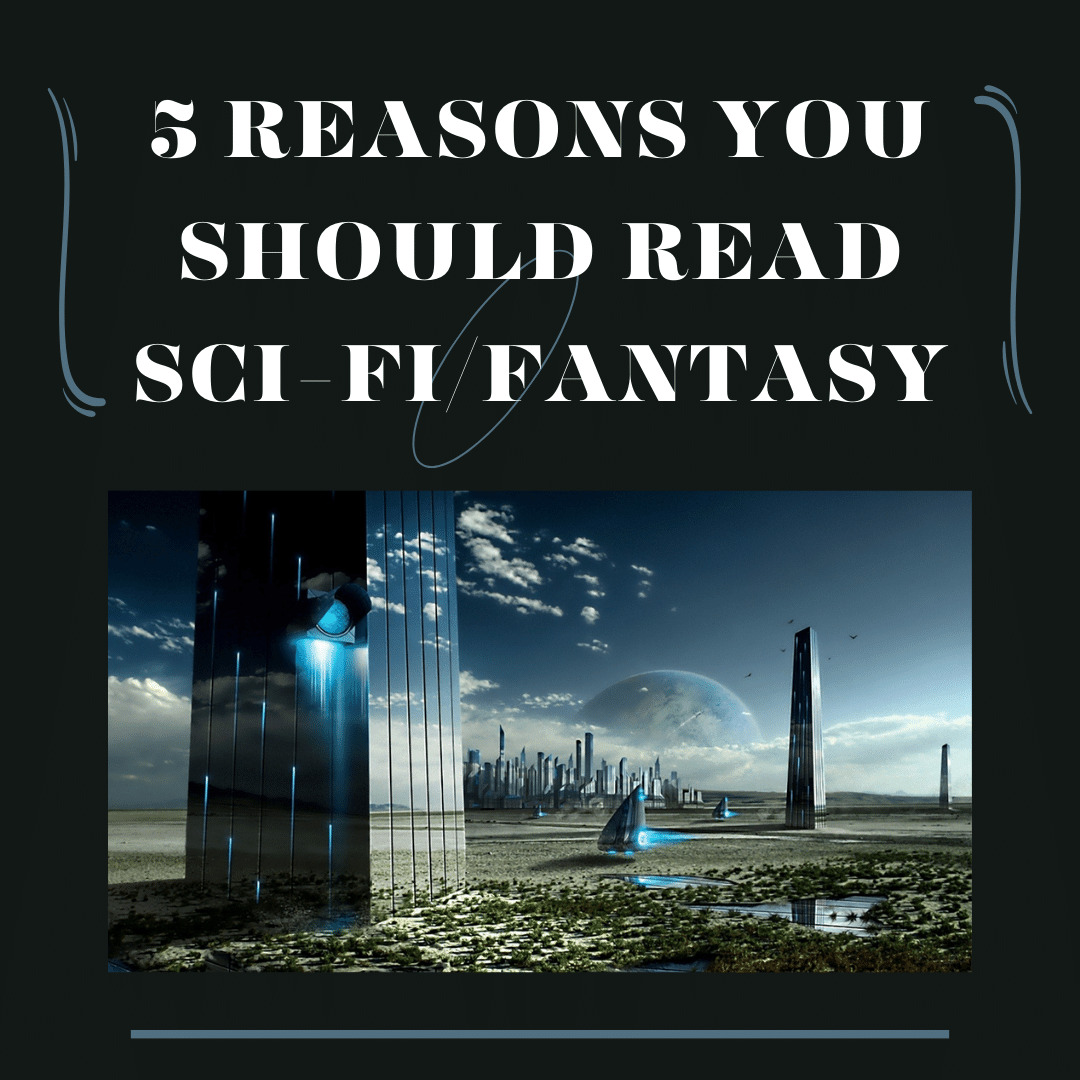
Top 30 Cartoon Characters That Were Villains
Our list rounds up the top 30 cartoon characters that were villains, each one more wonderfully wicked than the last.
Opinions
SFF authors spend a lot of time building utterly fantastical worlds drawn from countless imaginative figments, any one of which is bound to draw you in.

Of all the genres that abound in literary fiction, there is none so awesome, brilliant, inspiring and transporting as Science Fiction and Fantasy.
While they are two distinct genres, the industry tends to place the two under one big umbrella, given that fans of one are often adherents of the other. It could also be argued that books belonging to either genre have somewhat similar characteristics and tend to follow the same plot course and otherwise.
Nevertheless, whether it’s Space Operas you fancy or Epic Fantasy in the mould of J.R.R Tolkien, you’ll agree that few genres possess that magical quality.
This post is in no way taking a piss at other popular genres like Romance, Classics, African Literature, Oriental Literature and Thrillers. Rather, it’s a compelling tell of the beauties that lie in SFF (Science Fiction/Fantasy) and why you should read books in the genre.
Let’s get to the meat of the matter without further ado- five reasons you should read SFF.
If mystery and allure appeal to your senses, you will surely find the many strange worlds of SFF truly wondrous.
SFF authors spend a lot of time building utterly fantastical worlds drawn from countless imaginative figments, any one of which is bound to draw you in. The worlds often feature strange beings like elves, dwarves, gnomes, spirits, demons and alien species that defy count. Although many of these worlds are based on real places within the Universe, the boundlessness that’s boldly displayed in SFF works incentivises anyone who isn’t scared to dive into strange and majestic worlds.
From ancient monoliths and futuristic travel capsules to prehistoric caves, strange skies and even more astounding beasts, SFF has something for every genuinely curious reader.

Having read fantasy for over a decade, I can categorically state that few genres reflect human character and societal issues than SFF. This is even more impressive, considering that the genre is supposed to typify everything fantastic.
Fantasy and Speculative Fiction have long been seen as escapist reads, something to quickly get into when there’s a need to escape, as it were, from reality. Of course, there’s no crime in being an escapist reader. However, I’m quick to disagree when certain readers downplay the value of the genre.
Except you simply ignore the underlying themes when you read, you cannot deny just how lifelike and real SFF stories and characters are. In SFF, you see the cruelty, love, shyness, anger, scheming, politicking, religiosity and hypocrisy of humanity on full display in 4K resolution.

SFF stimulates your mental faculties in ways, unlike any other genre. I still remember the first time I read The Wheel of Time– the dreams were nonstop, flowing seamlessly from one crazy scene into the other, night after night.
While some readers may find this a weird and frankly outlandish and divergent kink, I can tell you that it’s a great experience. The more exciting you find the read, the more immersive the respective dream, as the entire story digs out a physical niche inside your brain until it’s part of your person.
You may have noticed that much of the most fanatical and obsessive fanbase of movies and books tends to be of the SFF nature. Franchises like Star Wars, Lord of The Rings and Harry Potter inspire people so much, not only because they’re well-written (or well-directed). They’re literary canon today because the fans actually dreamed about them at some stage.
Just ask any Harry Potter fan. I can personally testify to the dementors…

SFF writers are simply awesome. From John Scalzi to Christopher Ruocchio, Joe Abercrombie and G.R.R Martin, there are tons of wordsmiths whose goal in life is to write great stories and paint them in sweeping, stylistic, and orgasmic strokes.
Some readers aren’t particular about an author’s writing provided the story is good, there’s lots of action, and the characters are memorable. However, if you have a flair for quality writing, SFF has plenty of authors for you to try out.

Literary purists will always say that “books are better than movies”. However, as the Harry Potter and Lord of The Rings franchises have proved, the movies have the potential to make the books look even better. Plus, there’s the financial bonus for the authors of the books themselves. Just ask G.R.R Martin, who forgot his original fanbase when HBO’s big bucks came rolling in.
Anyway, if you’re curious about how your favourite titles will look on the big screens, you should be aware that SFF, more than any other genre, is currently dominating the Hollywood book-to-movie adaptation scene.
The likes of Dune, Ready Player One, The Hunger Games, Divergent, Eragon, Vampire Academy and The Chronicles of Narnia have already enjoyed varying levels of success on the big screens and media streaming networks. Meanwhile, deals have been struck with the like of Tomi Adeyemi, Pierce Brown, Patrick Rothfuss, Ursula Le Guin, and Leigh Bardugo for works still in progress.
In all, there’s plenty to look forward to in SFF, as far as movies and TV series are concerned.

So, there you have my five reasons why you should read Science-Fiction/Fantasy. You may have deduced that I’m absolutely crazy about the genre- and know a lot about it, too!
Nevertheless, that’s not to say that I’m a one-trick pony. I read several other genres (including non-fiction), but I can tell you that SFF is absolutely unique. If you disagree, it’s fine. You can go on to write your own piece lauding your favourite genre or share a contrary opinion in the comments below.
I’ll be happy to read either.

The Tyrant Overlord. Fantasy buff and avid football fan.

Our list rounds up the top 30 cartoon characters that were villains, each one more wonderfully wicked than the last.

DC is great at making comics and animated movies, while the MCU has the upper hand in its cinematic aspects

Discover the best apps to read books for free in 2025. Access thousands of free e-books and audiobooks on your phone or tablet. ...

There are some outright funny cartoon characters who exist solely to crack you up, loud, hard, and with zero apology.

Things Fall Apart is for the colonizers as well as the colonized, helping to understand the role of colonialism in the realization...

While many of the Nollywood movies on our list are quite old, it’s a testament to the capabilities of the industry’s p...

While this isn’t an exhaustive list, it comprises some of the most popular mythical creatures from around the world.